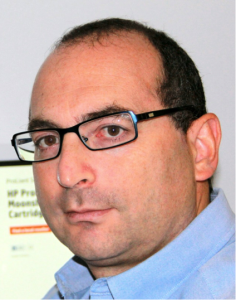 Abstract: By end of the decade we expect over 30 billion intelligent devices connected to the internet, resulting in unprecedented amounts of data. At the same time, scaling of the memory technologies that are at the foundation of computing today will significantly slow down. We will need transformational changes to the way in which we collect, process, store, and analyze that data. Not everyone realizes that these changes will revolutionize the way in which we architect and program computing systems. This talk will discuss the technology trends, the implications to software and programming, and what we are doing at HP to address some of the challenges. Starting from the emerging non-volatile devices, it will cover how they will enable flattening and re-architecting the memory hierarchy. Then, it will dive into the implications to software, discussing how file systems, databases and explicit applications can take advantage of large, flat and persistent memory spaces.
Abstract: By end of the decade we expect over 30 billion intelligent devices connected to the internet, resulting in unprecedented amounts of data. At the same time, scaling of the memory technologies that are at the foundation of computing today will significantly slow down. We will need transformational changes to the way in which we collect, process, store, and analyze that data. Not everyone realizes that these changes will revolutionize the way in which we architect and program computing systems. This talk will discuss the technology trends, the implications to software and programming, and what we are doing at HP to address some of the challenges. Starting from the emerging non-volatile devices, it will cover how they will enable flattening and re-architecting the memory hierarchy. Then, it will dive into the implications to software, discussing how file systems, databases and explicit applications can take advantage of large, flat and persistent memory spaces.
Biography: Paolo Faraboschi is an HP Fellow at HP Labs. His interests are at the intersection of system architecture and software. He is currently working on TheMachine project, researching how we can build better systems around non-volatile memory. In the last five years, he worked on low-energy servers and HP project Moonshot. From 2004 to 2009, at HPL in Barcelona, he led a research activity on scalable system-level simulation and modeling. From 1995 to 2003, at HPL Cambridge, he was the principal architect of the Lx/ST200 family of VLIW cores, widely used in video SoCs and HP’s printers. Paolo is an IEEE Fellow and an active member of the computer architecture community: guest co-editor of IEEE Micro TopPicks 2012, Program co-Chair for HiPEAC10 (2010), MICRO41 (2008) and MICRO34 (2001). He holds 25 patents and co-authored the book “Embedded Computing: a VLIW approach to architecture, compiler end tools”. Before joining HP in 1994, he received a Ph.D. in EECS from the University of Genoa, Italy.
